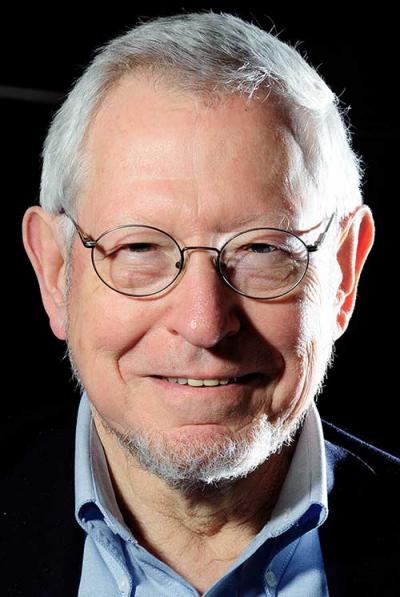/ Featured Blogs
ISOC and the PIR Sale: Lessons Being Learned
 The PIR/.ORG transaction is a watershed moment for ISOC. What had once seemed (at least to ISOC and its Board) to be ISOC's chance to transform its finances now seems to many to be a threat to ISOC's essence, and even its very existence. From the ISOC-NY perspective, this entire affair points out the paucity of community-involved multistakeholder participation in ISOC's critical decision-making processes (and other processes, too).
The PIR/.ORG transaction is a watershed moment for ISOC. What had once seemed (at least to ISOC and its Board) to be ISOC's chance to transform its finances now seems to many to be a threat to ISOC's essence, and even its very existence. From the ISOC-NY perspective, this entire affair points out the paucity of community-involved multistakeholder participation in ISOC's critical decision-making processes (and other processes, too).
- By Greg Shatan
- Comments: 2
- Views: 6,159
Troubling Efforts to Distort and Undermine the Multistakeholder Process
 ICANN's request for comment on amending the .com registry agreement to restore Verisign's pre-2012 pricing flexibility ended last Friday and, with 8,998 responses submitted by stakeholders, may have been a multistakeholder version of the St. Valentine's Day Massacre. Public interest in .com pricing is understandably high but the sheer volume of responses – nearly three times the number of comments submitted this summer on deregulating .org pricing – also suggests a show of force...
ICANN's request for comment on amending the .com registry agreement to restore Verisign's pre-2012 pricing flexibility ended last Friday and, with 8,998 responses submitted by stakeholders, may have been a multistakeholder version of the St. Valentine's Day Massacre. Public interest in .com pricing is understandably high but the sheer volume of responses – nearly three times the number of comments submitted this summer on deregulating .org pricing – also suggests a show of force...
- By Greg Thomas
- Comments: 0
- Views: 6,218
Broadband in China
 For years I've been hearing how we are losing the broadband battle with China, so I decided to take a look at the current state of broadband in the country. The China Internet Network Information Center (CNNIC) publishes statistics about the state of broadband in the country, and I used the Statistical Report on Internet Development in China from August 2019 in writing this blog.
For years I've been hearing how we are losing the broadband battle with China, so I decided to take a look at the current state of broadband in the country. The China Internet Network Information Center (CNNIC) publishes statistics about the state of broadband in the country, and I used the Statistical Report on Internet Development in China from August 2019 in writing this blog.
- By Doug Dawson
- Comments: 1
- Views: 7,608
Stop Propagating False Information About the .ORG Transaction
 We were disappointed to see The Pittsburgh Post-Gazette publish a recent editorial on February 13 about the sale of Public Interest Registry (PIR, the company that operates .ORG) that propagates false information about the transaction, including runaway prices, censorship and lack of experience. Runaway prices? Ethos Capital and PIR have committed to capping price increases to no more than ten percent per year on average.
We were disappointed to see The Pittsburgh Post-Gazette publish a recent editorial on February 13 about the sale of Public Interest Registry (PIR, the company that operates .ORG) that propagates false information about the transaction, including runaway prices, censorship and lack of experience. Runaway prices? Ethos Capital and PIR have committed to capping price increases to no more than ten percent per year on average.
- By Nora Abusitta-Ouri
- Comments: 4
- Views: 5,909
ICANN: Do Not Allow Closed New gTLDs With Generic Strings
 Within the next year, the ICANN Board may well face a decision that will help determine whether ICANN is capable of serving the global public interest or whether it is degenerating into an industry-controlled self-regulatory association. The issue can be framed quite simply: will ICANN approve a process for the creation of a new wave of new generic top level domains that will include "closed generic" gTLDs?
Within the next year, the ICANN Board may well face a decision that will help determine whether ICANN is capable of serving the global public interest or whether it is degenerating into an industry-controlled self-regulatory association. The issue can be framed quite simply: will ICANN approve a process for the creation of a new wave of new generic top level domains that will include "closed generic" gTLDs?
- By George Sadowsky
- Comments: 8
- Views: 11,581
LEO Broadband Will Create Millions of Jobs
 Earlier this month, Elon Musk tweeted an invitation to a job fair at the new SpaceX production and launch facility near Boca Chica, Texas. As shown here, the tweet says they want hard-working, trustworthy people with common sense. They are not looking for specific skills or education, but certain character traits – "the rest we can train." That tweet reminded me of hiring practices when I graduated from college.
Earlier this month, Elon Musk tweeted an invitation to a job fair at the new SpaceX production and launch facility near Boca Chica, Texas. As shown here, the tweet says they want hard-working, trustworthy people with common sense. They are not looking for specific skills or education, but certain character traits – "the rest we can train." That tweet reminded me of hiring practices when I graduated from college.
- By Larry Press
- Comments: 0
- Views: 6,207
WTSA-2020: Reflecting on a Contemporary ITU-T Role
 Every four years – as it has done for nearly a hundred years – the ITU-T as the world's only global intergovernmental standards body for all telecommunication, invites its 196 sovereign state members to a meeting where they examine their work and set the stage for the next four years. There is no treaty prepared, but they do examine major developments and decide needed standardization work, priorities and structure of the organization itself – including their leadership.
Every four years – as it has done for nearly a hundred years – the ITU-T as the world's only global intergovernmental standards body for all telecommunication, invites its 196 sovereign state members to a meeting where they examine their work and set the stage for the next four years. There is no treaty prepared, but they do examine major developments and decide needed standardization work, priorities and structure of the organization itself – including their leadership.
- By Anthony Rutkowski
- Comments: 1
- Views: 9,080
It’s Time to Curtail the Censorship Industry Cartel
 Last month INHOPE, a global trade association of child abuse reporting hotlines, rejected a joint call from Prostasia Foundation, the National Coalition Against Censorship, Article 19, and the Comic Book Legal Defense Fund, that its members should stop treating cartoons as if they were images of child sexual abuse. As our joint letter pointed out, INHOPE's conflation of offensive artwork with actual abuse images has resulted in the misdirection of police resources against artists and fans...
Last month INHOPE, a global trade association of child abuse reporting hotlines, rejected a joint call from Prostasia Foundation, the National Coalition Against Censorship, Article 19, and the Comic Book Legal Defense Fund, that its members should stop treating cartoons as if they were images of child sexual abuse. As our joint letter pointed out, INHOPE's conflation of offensive artwork with actual abuse images has resulted in the misdirection of police resources against artists and fans...
- By Jeremy Malcolm
- Comments: 0
- Views: 7,348
Can 5G Replace WiFi?
 Verizon recently posted a webcast with investors where Ronan Dunne, EVP and CEO of the Verizon Consumer Group said that he believed that 5G hotspots using millimeter wave spectrum would eventually displace WiFi in homes. He cites major benefits of 5G over WiFi. He believes that a 5G network will be more reliable and more secure. He thinks that people will value the safety that comes from having traffic inside their home being encrypted...
Verizon recently posted a webcast with investors where Ronan Dunne, EVP and CEO of the Verizon Consumer Group said that he believed that 5G hotspots using millimeter wave spectrum would eventually displace WiFi in homes. He cites major benefits of 5G over WiFi. He believes that a 5G network will be more reliable and more secure. He thinks that people will value the safety that comes from having traffic inside their home being encrypted...
- By Doug Dawson
- Comments: 1
- Views: 8,756
Cracks Appearing in Trump’s Huawei Boycott
 It must have been a galling experience for President Trump when his good mate British Prime Minister Boris Johnson failed to step in line with Trump's demand that the UK should also boycott the Chinese firm Huawei by not allowing them to be involved in the rollout of 5G in Britain. However, the involvement of Huawei will be limited. It further proves that boycotting Huawei is a political and not a technical issue.
It must have been a galling experience for President Trump when his good mate British Prime Minister Boris Johnson failed to step in line with Trump's demand that the UK should also boycott the Chinese firm Huawei by not allowing them to be involved in the rollout of 5G in Britain. However, the involvement of Huawei will be limited. It further proves that boycotting Huawei is a political and not a technical issue.
- By Paul Budde
- Comments: 0
- Views: 5,487